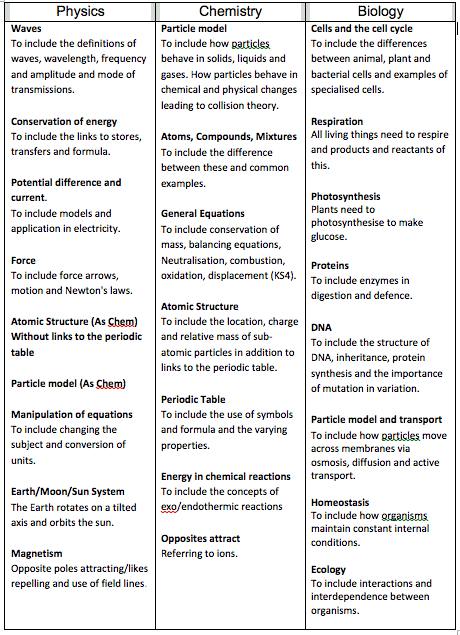Curriculum Statement - Science
“Genius is 1% talent and 99% hard work.” – Thomas Edison
Our Vision
To create an ambitious and challenging curriculum that provides all students, regardless of background or circumstance, with the knowledge, skills and cultural capital they need to succeed in life, as well as a depth of understanding that will enable them to pursue science beyond key stages 4 and 5.
We offer a broad and deep curriculum that builds on the National Curriculum focusing on powerful knowledge, disciplinary knowledge and threshold concepts. We believe that mastery of threshold concepts is integral to students accessing subsequent powerful knowledge and gaining a deep understanding and appreciation of science.
Our students will develop a passion and enthusiasm for science through science lessons, projects, competitions and the electives program.
Science Curriculum
We have identified the most important threshold concepts below. Our curriculum is designed to teach, revisit and build on these concepts throughout the key stages.
Threshold Concepts in Science

Curriculum Features
- Taught in specialisms where possible.
- Covers the national curriculum but focuses on identified threshold concepts (see above). More time is devoted to these concepts and a mastery learning philosophy is promoted.
- There are many topics we cover in addition to the national curriculum as we believe these topics can enhance student’s cultural capital and understanding of science.
- There is a large focus on understanding concepts through;
Explanation
Retrieval
Interleaving Formative assessment
Practice
Feedback
Practical Work
- There is always at least one of the following foci to practical work;
- Improve knowledge,
- Practice procedures and techniques,
- Learn about scientific enquiry.
Co-curricula Enrichment
We provide enrichment for a number of reasons;
- To promote a love of the subject.
- To enhance student’s cultural capital.
- To teach powerful knowledge specific to science.
- Increase at uptake at KS4, 5 and beyond.
- Narrow attainment gaps.
- Promoting STEM Careers.
- Stretch / Challenge / Aspirations.
- Promote oracy.
KS3
During key stage three students develop an understanding of the fundamentals of physics, chemistry and biology.
During year seven students study
| Physics | Chemistry | Biology |
| Forces | The Particle model | Cells |
| Energy | Atoms, Elements & the Periodic Table | Reproduction |
| Electricity | Compounds & Mixtures | Plants & the Environment |
| Magnetism | Acids & Bases | Variation |
| Sound and Light | Equations | Food & Digestion |
| Space | Chemical reactions |
In year eight this work is built upon through the topics of
| Physics | Chemistry | Biology |
| Motion | Fundamentals | Respiration |
| Electricity & static Electricity | Purity & Separating Mixtures | Exchange in Organisms |
| Energy | Metals | Photosynthesis |
| Thermal Energy | Rates of Reaction | Pathogens & Disease |
| Light | Environment & Feeding Relationships | |
| Gravitational Forces |
In year nine the curriculum progresses to
| Physics | Chemistry | Biology |
| Nuclear Physics | Fundamentals | Human Biology |
| Simple Machines | Energy in Reactions | Genes, Evolution & Technology |
| Newton’s Laws of Motion | Chemical Reactions | Enzymes |
| Electromagnetism | Atoms & the Periodic Table | Ecology |
| Electromagnetic Waves | Ions | |
| Cosmology | Separating Techniques |
Students also develop their practical skills throughout the key stage.
KS4
Students study the Pearson GCSE specification. Students can opt to study GCSE separate sciences gaining GCSE qualifications in physics, chemistry & biology.
Further detail is available on the exam board website below
qualifications.pearson.com/en/qualifications/edexcel-gcses/sciences-2016.html